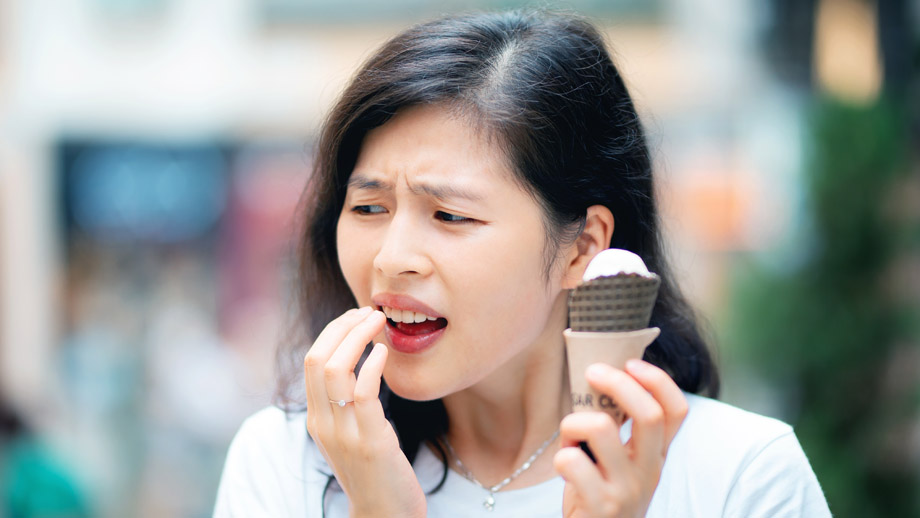Do you love ice cream but find yourself
avoiding it due to tooth sensitivity?
Tooth sensitivity can be not only uncomfortable but
also disruptive to your daily life. The pain
experienced when consuming cold or hot foods, soft
drinks, sugary treats, or even encountering a cold
wind against your teeth can be quite distressing.
Sensitivity in teeth can arise from various dental
issues.
What Causes Tooth Sensitivity?
Tooth sensitivity occurs when the protective
enamel of our teeth becomes thinner, or when
the gums recede, exposing the underlying
surface called dentin. Dentin is filled with
tiny tubes containing sensitive nerve
endings.
According to the American Dental
Association (ADA), tooth sensitivity can be
caused by gum disease, tooth decay, root
exposure, aggressive tooth brushing, and
enamel erosion.
If you suspect that tooth decay,
disease, or infection is the root cause of
your sensitive teeth, seeking the help of
dentists at Ridgetop Dental International
can assist you in overcoming these issues.
However, conditions like soft enamel might
be influenced by habits or even hereditary
factors, making it easier for enamel to wear
down.
Managing tooth sensitivity often involves
remedies that you can implement on your own.
Simple adjustments to your everyday habits
can make a significant difference in how
your teeth feel on a daily basis. Here are
some tips for promoting healthier and
pain-free teeth:
1. Choose the Right Toothbrush and
Brushing Technique:
Brushing is essential for dental health, but
using a hard-bristled toothbrush or highly
abrasive toothpaste can worsen tooth
sensitivity. Make sure you use a good
toothbrush and consult your dentist in Q
Dental Clinic at KPHB to know the correct
brushing technique. This seemingly small
step can significantly alleviate sensitivity
2. Avoid Acidic Foods:
Certain foods, such as carbonated drinks,
coffee, citrus fruits, and yogurt, can
trigger sensitivity. Acidic products
contribute to the erosion of tooth enamel.
Consider reducing or eliminating these foods
from your diet. If you can't resist your
daily soda, try using a straw to limit the
liquid's contact with your teeth. Also,
refrain from brushing your teeth immediately
after consuming acidic foods, as the acid
softens your enamel, making your teeth even
more sensitive if brushed too soon. Instead,
consider drinking a glass of milk to help
neutralize the acid.
3. Wear a Mouth Guard:
Do you unknowingly grind your teeth at
night? Teeth grinding, also known as
bruxism, can lead to enamel wear and cause
unexplained jaw pain or headaches. A
mouthguard can protect your teeth from
grinding during sleep. Consult your dentist
to get a suitable mouth guard that fits you
perfectly.
When it comes to treating tooth sensitivity,
various over-the-counter options are
available. However, these products may only
offer temporary relief and not address the
root cause.
It is advisable to schedule regular
visits to your dentist at Q Dental Clinic,
KPHB to identify and address the underlying
reasons for your sensitivity. Focusing on
treating the cause of sensitive teeth will
lead to better outcomes rather than merely
responding to the pain with temporary
solutions.

